I thought the Marine Building was built by the Guinness family until I started doing some research on this Art Deco icon—one of my favourite buildings in Vancouver. And while the Guinness family did eventually own it, the developer was a local guy who made a fortune during Prohibition.
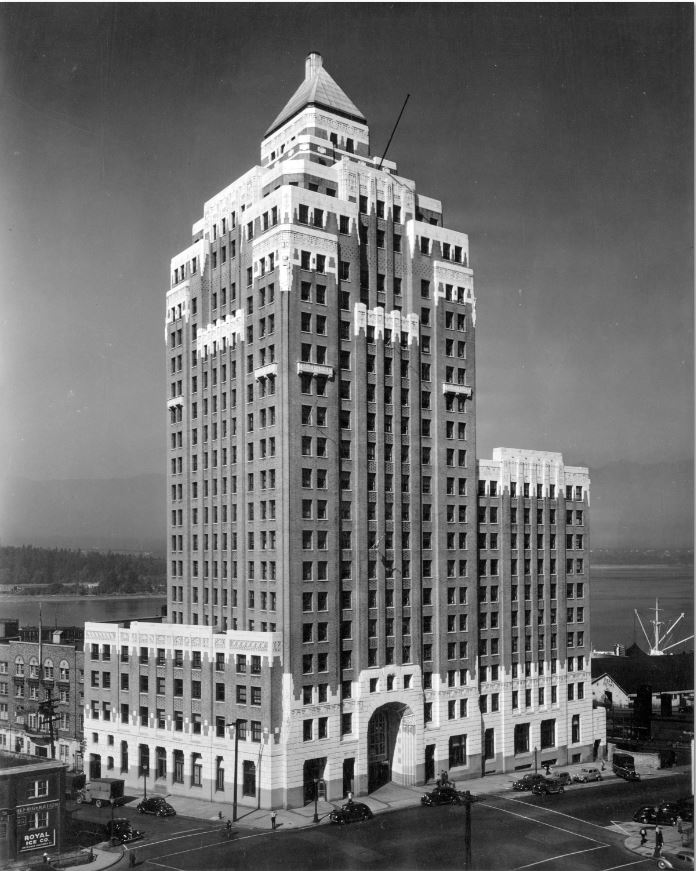
Joe Hobbs:
Joe Hobbs arrived in Vancouver around 1920—the start of US Prohibition. He founded Hobbs Bros, a ship holding company and front for his smuggling activities, and went about converting luxury yachts into rum running vessels.
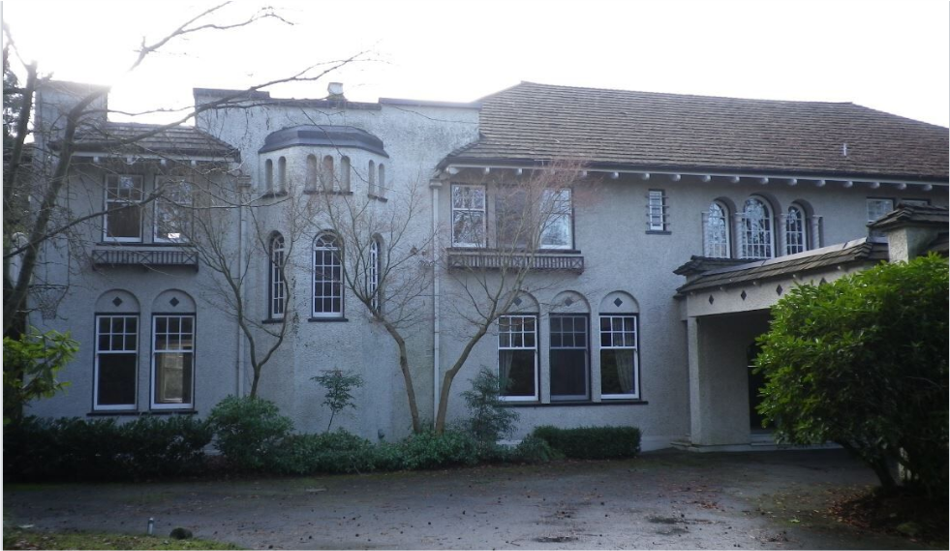
By 1925 Hobbs had made enough money to build a Shaughnessy mansion at 1656 Laurier Street, and three years later he went legit and became the vice-president of Toronto-based G.A. Stimson and Co. Ltd., Canada’s oldest bond company.
Hobbs wanted to build a monument to the city. Stimson’s saw it as an opportunity to expand the company into Western Canada. With the financing in place they secured the land at the foot of Burrard and Hastings Street.
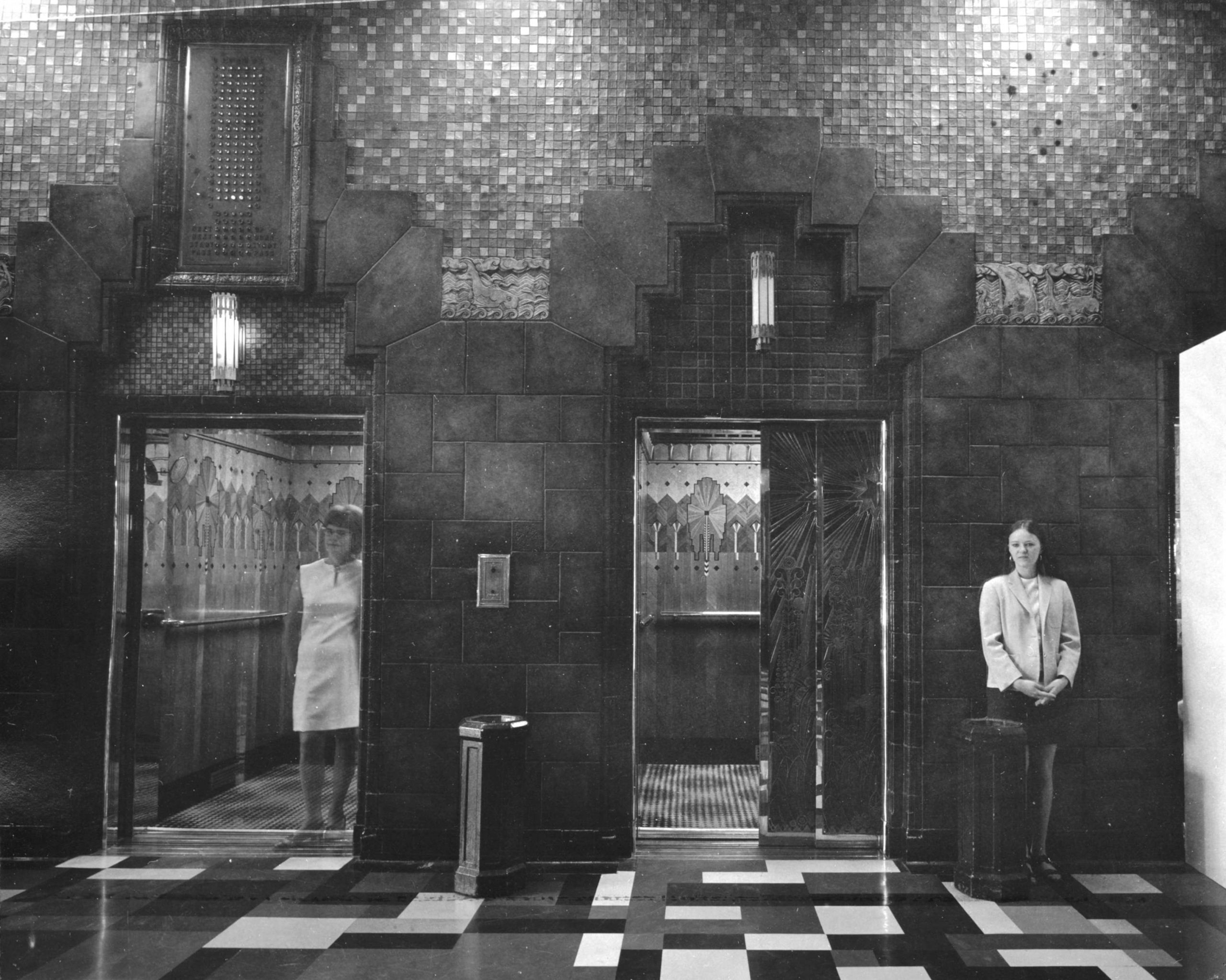
First High rise:
McCarter and Nairne, the same architects that designed the Devonshire Hotel, Georgia Medical and Dental Centre and the Livestock building, designed the Marine Building—the first high rise office tower in the city. The architect’s plans called for a “great crag rising from the sea clinging with sea flora and fauna, tinted in sea-green, touched with gold.”
After spending half a day crawling around the inside and outside (unfortunately not the penthouse) I’d say they accomplished what they set out to do. The details are amazing—from the five-foot King Neptune that stands guard from the 16th floor, to the three-dimensional ships carved into the building’s main entrance.
Grand concourse:
When the building opened visitors found it so posh that they couldn’t get beyond the Grand Concourse—the 90-foot long entrance hall. They’d see a floor inlaid with signs of the Zodiac, tiles with whales and Viking ships, and a clock with sea creatures instead of numbers. The five elevators have intricate bronze starbursts on their doors, and when built, were the fastest on the continent outside of New York.
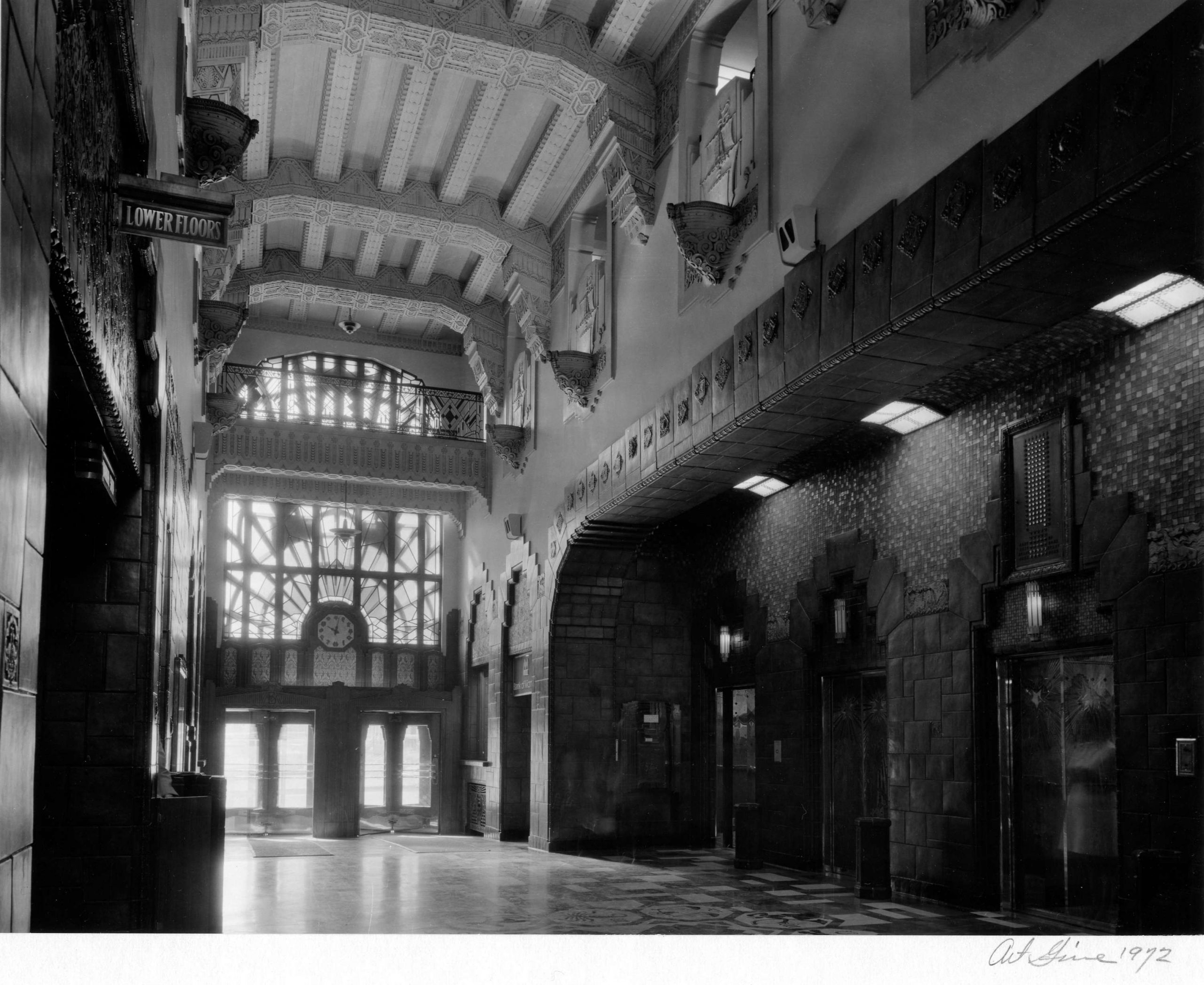
McCarter and Nairne moved into the 19th floor and stayed for the next 50 years. Directory listings read like a who’s who of business, with tenants that include the Vancouver Board of Trade, Merchants’ Exchange, Lloyds Register of Ships, and the American, Ecuadorian, Venezuela and Costa Rican Consulates. In 1933 there was even a birth control clinic, sharing the 16th floor with a number of shipping, grain and manufacturing companies.
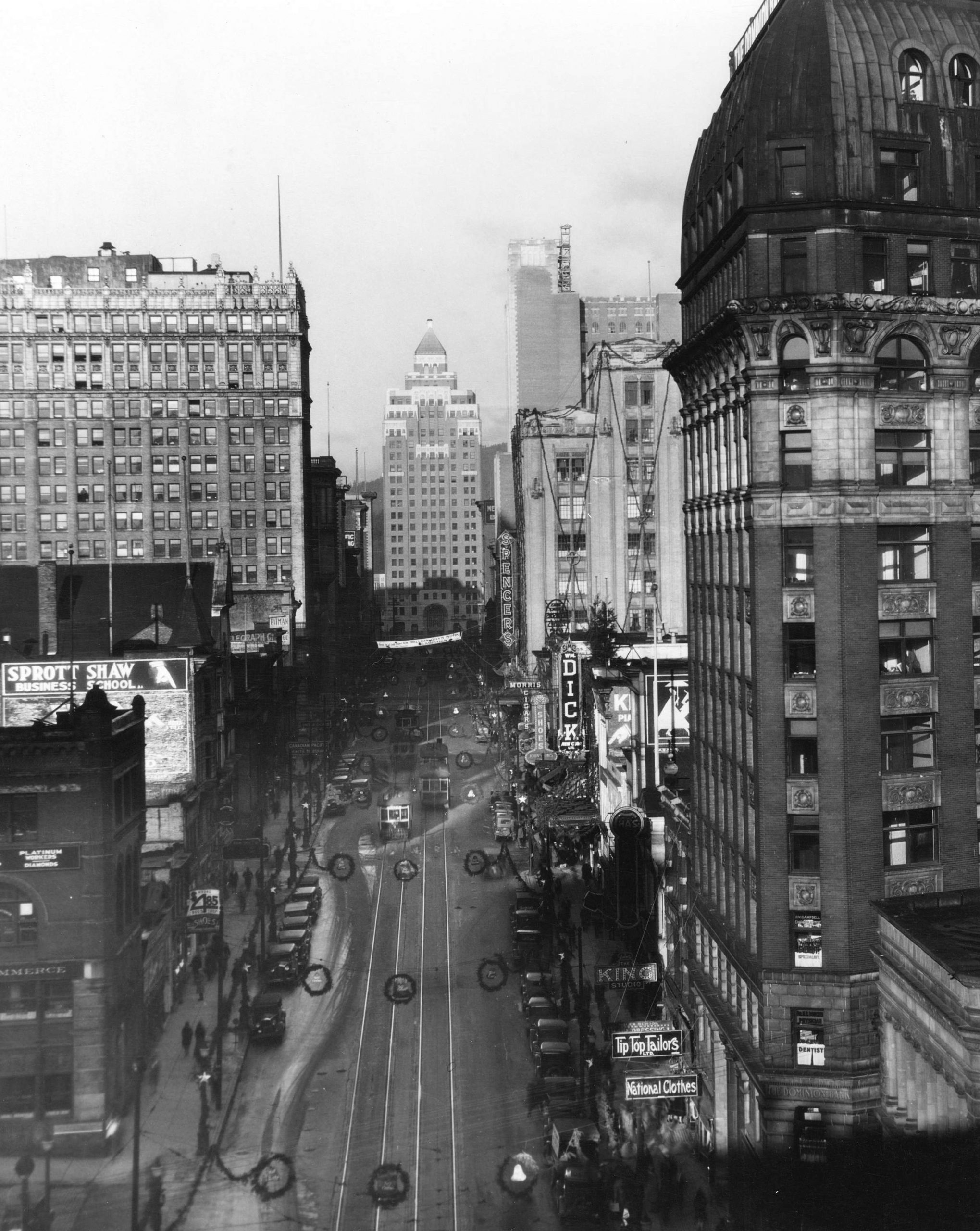
Million Dollar Folly:
It was too late for Hobbs. People called it the “million dollar folly” because it went $1.1 million over budget, and it bankrupted Stimson’s. Hobbs offered his building to the City of Vancouver for $1 million, but they turned him down, and in 1933 the building sold to the Guinness family for $900,000. Company representative AJT Taylor converted what had been an observation deck into his luxury penthouse, opened an office in the building, bought what’s now the British Properties, and in 1937 opened the Lion’s Gate Bridge.
Related:
© All rights reserved. Unless otherwise indicated, all blog content copyright Eve Lazarus.


